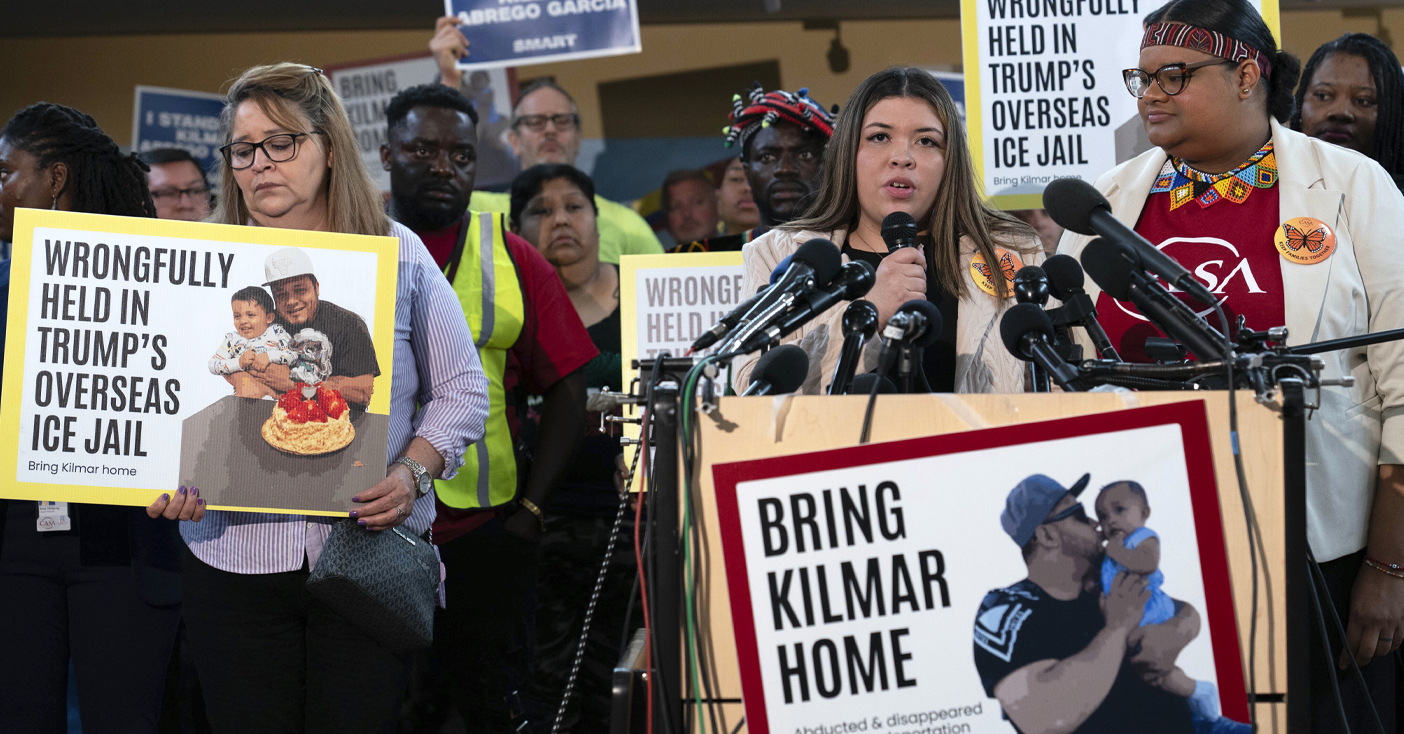DOJ Argues Courts Have ‘No Authority’ to Direct Trump to Bring Home Maryland Man Wrongly Deported to El Salvador

AP Photo/Jose Luis Magana
Attorneys with the Department of Justice filed a brief on Sunday arguing that a federal court has “no authority” to direct President Donald Trump or his administration in bringing home wrongly deported Maryland man Kilmar Abrego Garcia and should reject a request filed on his behalf by attorneys last week.
“The Court should deny Plaintiffs’ requests for further relief,” the brief filed by the administration reads. “The relief sought by Plaintiffs is inconsistent with the Supreme Court’s instruction requiring this Court to respect the President’s Article II authority to manage foreign policy.”
The brief was filed in response to the request by attorneys for Abrego Garcia and his family that the court order Trump and the government to take specific actions toward the return of the Maryland resident, who was wrongly deported to El Salvador, where he is a citizen. He has legal permission to reside in the United States, where’s lived for 14 years after coming here illegally. His wife and three children are American citizens.
State Department official Michael G. Kozak filed an update Saturday on Abrego Garcia’s status, writing that it is his understanding “based on official reporting from our Embassy in San Salvador that Abrego Garcia is currently being held in the Terrorism Confinement Center in El Salvador.”
“He is alive and secure in that facility,” Kozak said. “He is detained pursuant to the sovereign, domestic authority of El Salvador.”
Attorneys filed their request for specific actions to be taken by the administration which they said would acceptable constitute “facilitating” his release. The government responded Sunday with a brief arguing that granting the requested relief would require the court to “exceed its own authority’ and could “interfere with ongoing diplomatic discussions” in the case, “particularly in the context of [El Salvador President Nayib Bukele]’s ongoing trip to the United States.”
The attorneys argue (PDF):
Plaintiffs’ additional relief runs headlong through this constitutional limit. They ask this Court to order Defendants to (i) make demands of the El Salvadoran government (A1), (ii) dispatch personnel onto the soil of an independent, sovereign nation (A2), and (iii) send an aircraft into the airspace of a sovereign foreign nation to extract a citizen of that nation from its custody (A3). ECF 62 at 4. All of those requested orders involve interactions with a foreign sovereign—and potential violations of that sovereignty. But as explained, a federal court cannot compel the Executive Branch to engage in any mandated act of diplomacy or incursion upon the sovereignty of another nation.
Garcia is being held at the notorious CECOT prison in El Salvador along with many other deportees, as well as with members of vicious drug gangs whose potential persecution of Garcia was the basis for the court granting him the legal permission to remain in the United States in the first place.
This is a developing story and may be updated.





Comments
↓ Scroll down for comments ↓